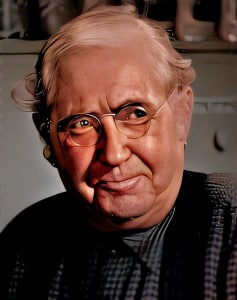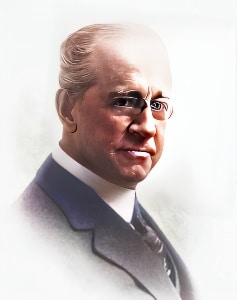 J. M. Kerrigan, whose full name was Joseph M. Kerrigan, was a distinguished Irish actor, director, and writer who made significant contributions to both stage and film during the early 20th century.
J. M. Kerrigan, whose full name was Joseph M. Kerrigan, was a distinguished Irish actor, director, and writer who made significant contributions to both stage and film during the early 20th century.
Born on December 16, 1884, in Dublin, Ireland, Kerrigan’s career was marked by his versatility as an actor and his commitment to the arts.
Kerrigan’s journey in the world of entertainment began on the theatrical stage. He honed his acting skills in Dublin’s Abbey Theatre, which was renowned for promoting Irish literary and dramatic works. His early work in the theater allowed him to develop a deep appreciation for storytelling and character development, skills that would serve him well in both stage and film.
One of the pivotal moments in J. M. Kerrigan’s career was his transition to the world of silent film. As the film industry was rapidly expanding in the early 20th century, Kerrigan’s expertise as a stage actor was sought after in the emerging world of cinema. His first major film role was in the 1915 silent movie “Birth of a Nation,” directed by D.W. Griffith. This film, although controversial for its portrayal of race and history, was a landmark in cinematic history and significantly boosted Kerrigan’s recognition as an actor.
Kerrigan’s performances in silent films showcased his ability to convey emotions and engage audiences without the use of spoken dialogue. His work in this medium encompassed a wide range of roles, from dramatic to comedic, and his ability to adapt to different characters added to the growing reputation of American cinema as a significant form of artistic expression.
As the film industry transitioned from silent to sound films in the late 1920s and early 1930s, Kerrigan’s career adapted to the changing landscape. His experience in silent films and his distinct Irish accent made him a sought-after talent in the early sound era of Hollywood. He continued to take on various roles, further contributing to the evolving landscape of American entertainment.
While J. M. Kerrigan may not be as widely remembered today as some of the leading actors of his time, his contributions to early American cinema are celebrated. His ability to emote and convey complex characters and emotions on screen made him a valued talent in the early days of Hollywood.
Kerrigan’s legacy endures as a testament to the talent, adaptability, and lasting influence of actors from the early days of American cinema. His ability to seamlessly transition from the stage to silent and sound films is a reflection of his versatility as a performer.
In conclusion, J. M. Kerrigan’s career serves as a reminder of the lasting impact of actors who navigated the transition from silent to sound films. His work in both mediums exemplified his adaptability and his ability to convey complex characters on screen. While he may not be a household name today, his legacy remains an integral part of the rich history of early Hollywood. Kerrigan’s presence in films like “Birth of a Nation” enriches the historical tapestry of early American cinema and underscores the significance of actors during a transformative era in the history of film.
Loading live eBay listings...




